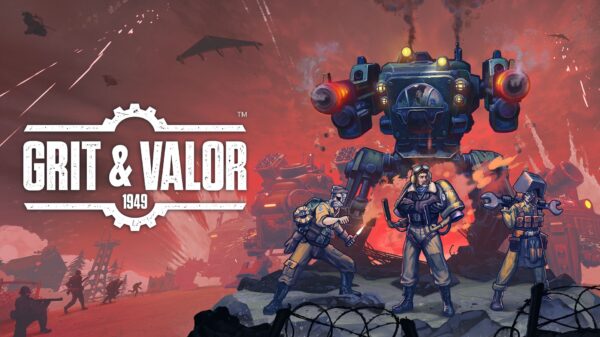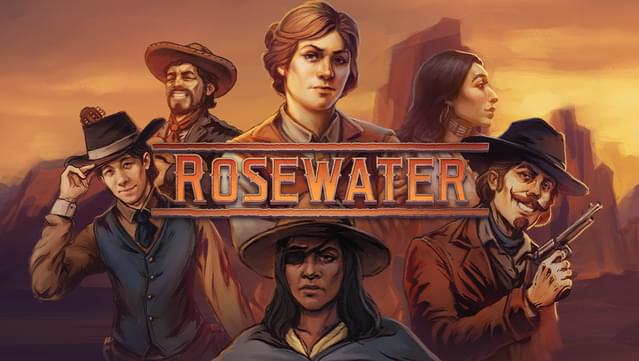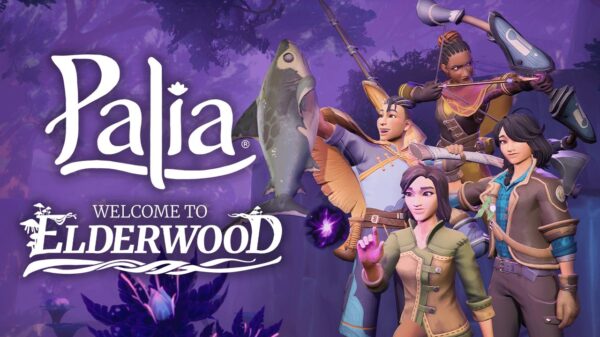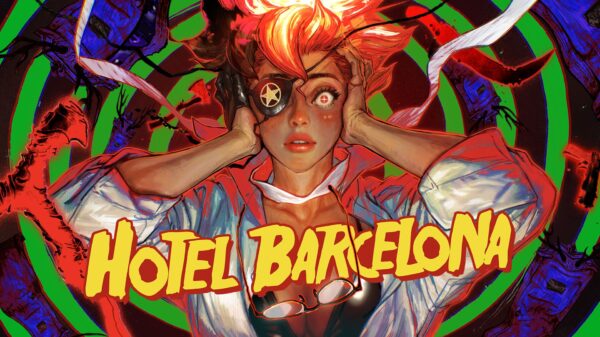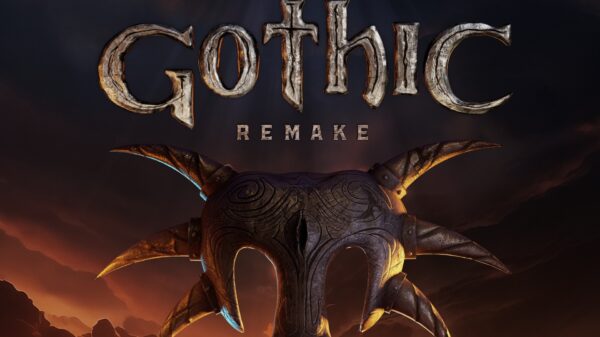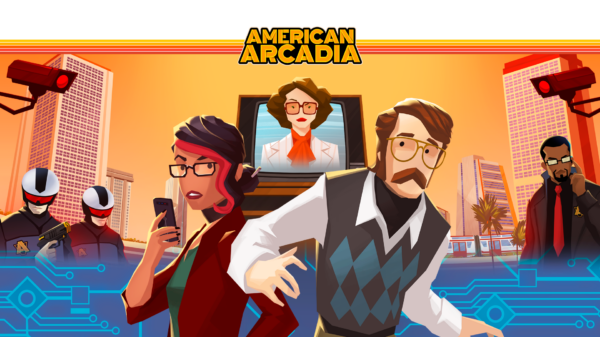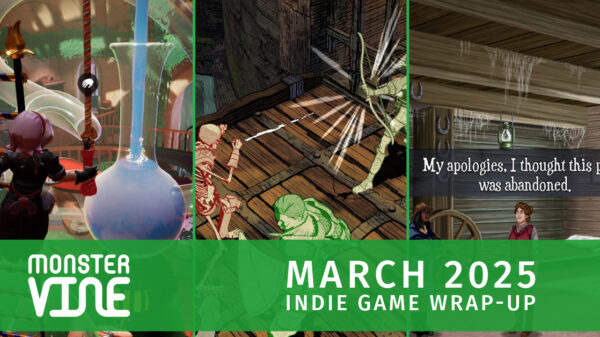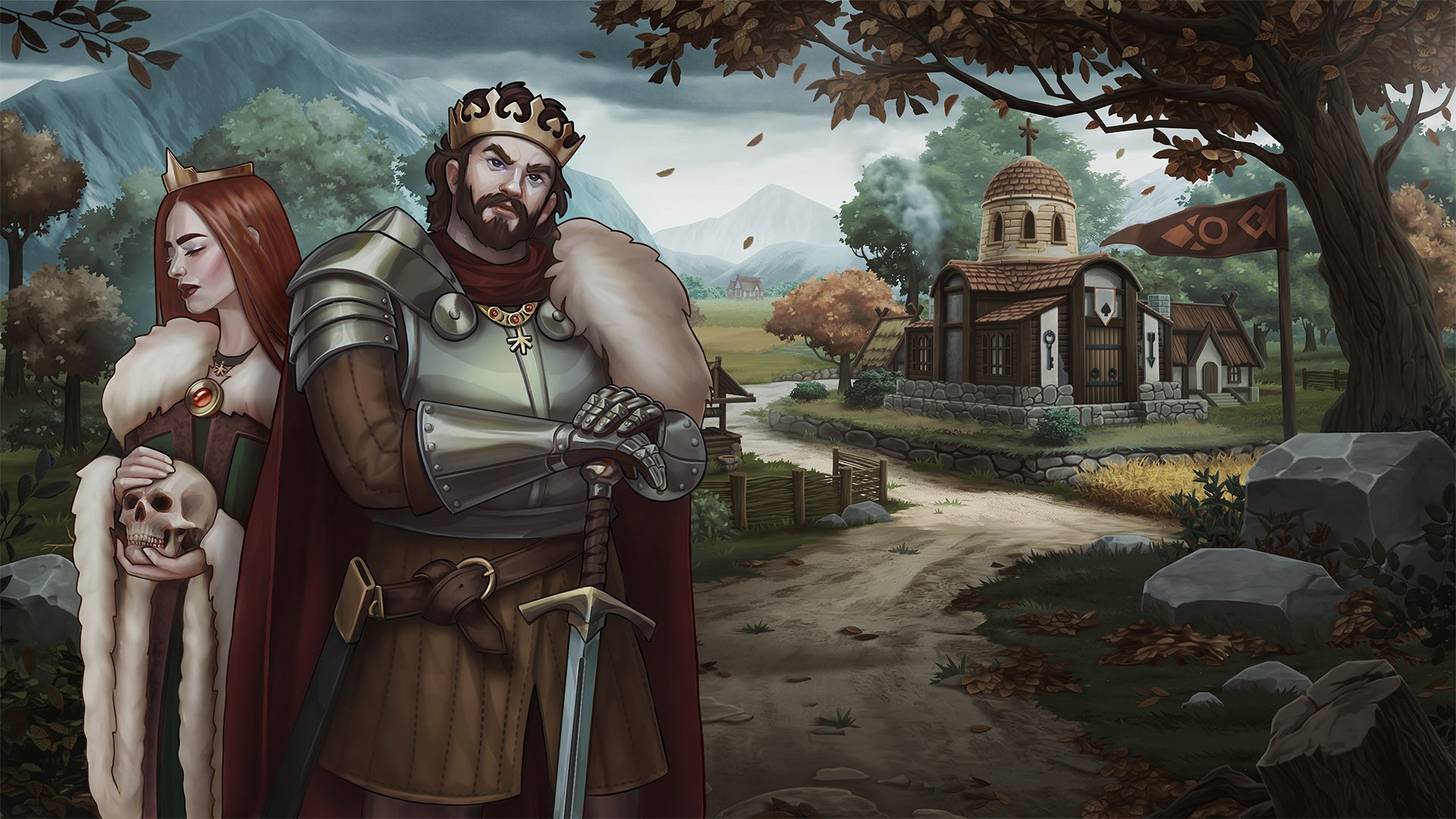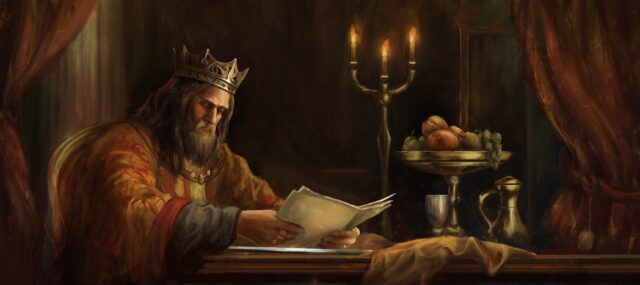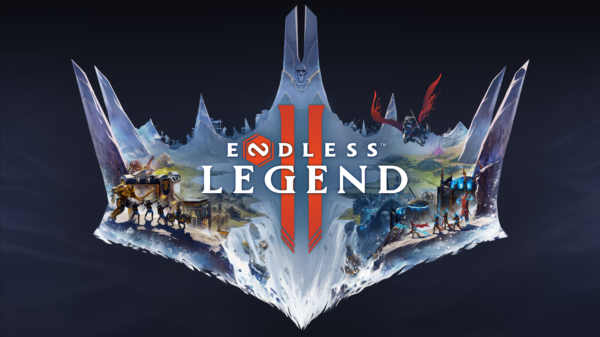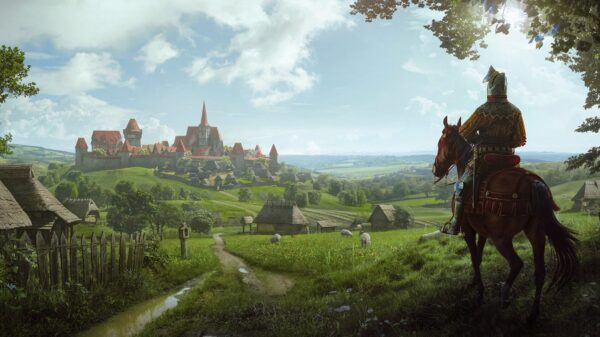I am a simple man of simple pleasures. I like colony sims and city builders and high concepts and let’s just say the pitch of “Rimworld plus Crusader Kings” was a “slam that buy button” choice for your boy Tommy Ravens. Let’s get through the story wrapper real quick: There was a war, the empire fell, and civilization is returning. Right, now to the meat. What’s the gimmick? Thank you for asking. The name of the game in this one is the thrilling, pulse-pounding action of…DELEGATION.
Many of these games make you order around your peasants, minions, workers, or whatever directly. Where Norland stands apart is simple: Instead of running the affair of the dirt-stained hordes, you manage via their betters: the nobles. You control a noble family of lords and tell them what to do and they, of course, being better than the mud-stained oafs, go out and tell the peasants what to build, how to farm, how to make things, and otherwise how to conduct themselves. You sit upon your throne like a king and order your lords around and they go out and tell everyone what to do. Marvelous.
The trick is, of course, that the lords have needs and wants of their own and don’t always listen. They need the usual things like food and drink and sleep but they also want things like religious services shiny rings (the currency of nobles) and sex. Nobles are incredibly horny. As with many of these games, they all have their own personalities, statistics, advantages, and flaws, which means this one has some element of city building and colony planning, but is more about the people management and trying to keep everyone happy and the larger picture.
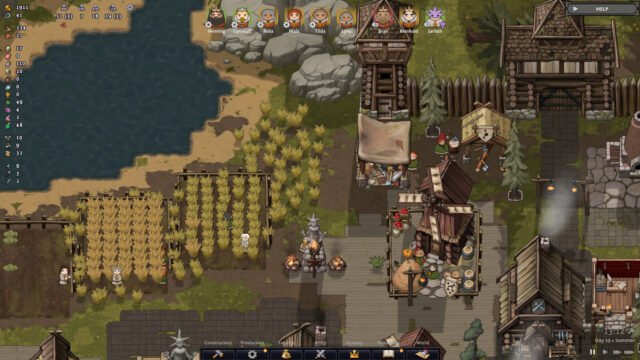
Which of course means the sexiest of all things: economics. Everyone tries to manage their own needs by getting the best stuff they can. The peasants get wages for working and they can buy the food you grow or have them make or purchase from traders with these wages. They also like to throw back a drink, so setting up a tavern and making sure the alcohol flows liberally keeps them happy (of course, the mud-stained wretches dull their senses with drink)…but so do your nobles, and keeping them in high-quality hooch is one way of keeping them happy. But controlling the prices is also a way to make some money. But set prices too high and they won’t be able to buy anything and they’ll be sad. But set wages too high and your tidy little realm will go broke. While this can be quite complex, Norland is actually pretty good about explaining these things, a blessing in this very complicated space.
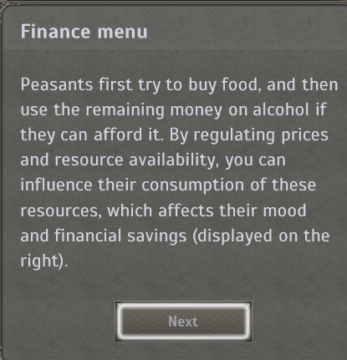
There are also caravans that come and trade regularly, which means gold, Holy Rings (which Lords care about very much!) prisoners that can be freed to put to work, trade goods, skill books to make you better at things, goods you can’t make or find yet, and other goodies. This is the other great hook of Norland: You are instantly part of a wider world. You have neighbors, can set up trade routes, need to marry people off to form alliances, have enemies, and otherwise can get embroiled in politics, wars, fighting thieves, and otherwise get yourself in a mess very, very quickly. Or you can try and hang out and build things and keep your bloody peasants from starving to death.
As with most of these games, you can configure your starting party to your heart’s content, even this early in the game. Two brothers with a wife for one of them? Husband, wife, and child? Want to make em weird looking? Go hog wild!
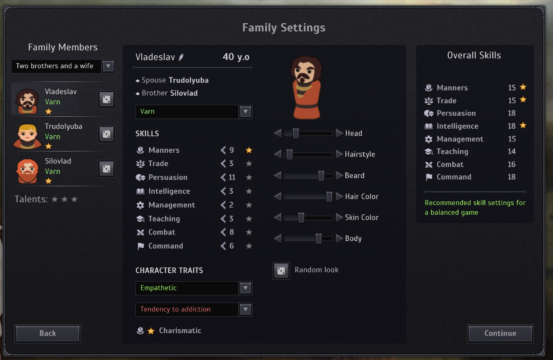
While there is only one map right now, the world setup/configuration is pretty robust and you can pick a few different regions including…what’s that? GOLDSHIRE?! OH GOD OH NO…
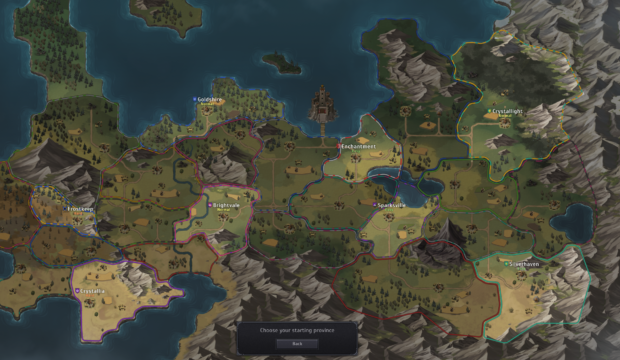
You can see the resources. Silverhaven here has wood, iron, herbs, and decent soil and two smaller villages that supply tribute of turnips (useful as food and can be made into moonshine, useful as booze and as a tradegood) and wood (useful for building stuff).
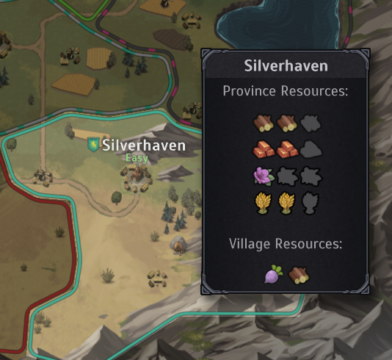
And create a State, if you’re so inclined.
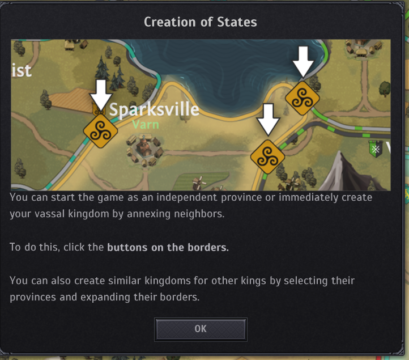
And even configure quite a bit for Early Access, from your initial resources to your particular ethnic background to the colors and style of your banner.
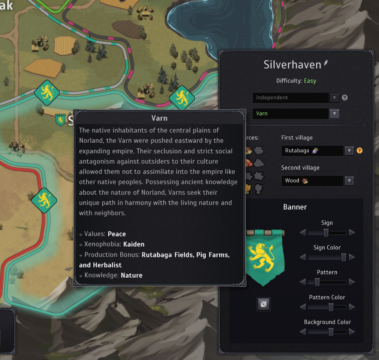
BUT ALSO! While there’s only one map for now, you can already configure modifiers and difficulty and various scenarios to a bewildering degree. Want to do something like save family members or build towards a goal or make the setup more challenging? Go wild. Want to build stuff and be left alone? Sure.
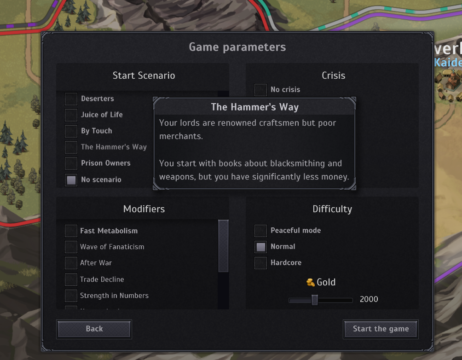
Many games have this level of detail but very few manage it right out of the gate.
As with most of these games, your starting loadout (lordout?) is important, but unlike most, you’re not totally hosed. Your nobles might not know about mining or how to build a temple, but enough trade caravans come by that you can probably pick up a skillbook, and then they just need to sit in the library and read to learn about it…BUT if you don’t have paper and write it down, then that knowledge dies with them…BUT it takes time to learn, time they can’t spend lecturing peasants…BUT it also takes time to write it down. There are only so many peasant-lecturing hours in a day, after all.
And events happen or can happen of a lordly nature that can take you out of the basic colony management game, from setting up trade routes to a neighbor calling for assistance…and maybe you decide to help or maybe you decide to backstab them. Maybe your king marches off to help/backstab them and disappears. WELP. Maybe you hire bandits to fill out your army, which pisses off everyone. WELP. Maybe you marry off your unmarried lord but he hates his wife more than a Boomer comedian and starts banging a peasant woman, which pisses off everyone, but he’s really good at running things, so you’re stuck managing the courtly soap opera. And there’s always an overarching goal, if you want: unite the provinces or challenge the mighty church and proclaim yourself Emperor.
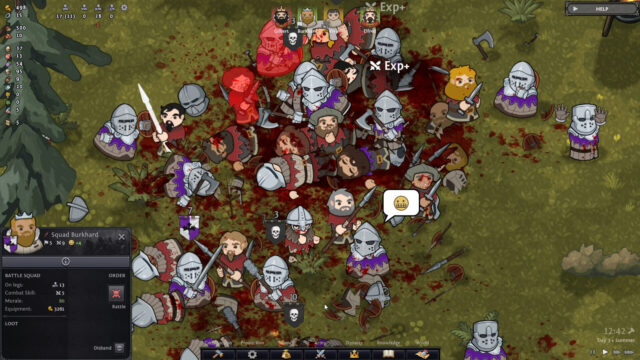
And while sex complicates things, of course, it is also important: children means no heirs. But it also ties in with the larger diplomatic game: you can marry off your children to tighten relationships. Or they can be useful in helping to run things. But it is also useful to marry them off and bring skilled people into the family.
If Norland has a weakness, I think it’s more of a taste/style thing: If you like the early game fun of getting basic systems online, designating stockpiles, and so forth, it’s not that kind of game. The nobles take care of yelling at the workers and you spend a lot of the early game herding nobles around and waiting for resources to accumulate and managing social relationships. I can see why there’s negative reviews for it, but I think it’s a taste and flavor thing. There’s also only one map and only so many starting locations right now, but as I said, there’s a lot of customizability in the settings and options. As usual with this sort of game, there are also…I don’t know if I’d call them bugs so much as quirks, like your agnostic lord who is worried God is going to send them to Hell and spends a lot of time freaking out if they can’t go to the temple. But I also know people like that.
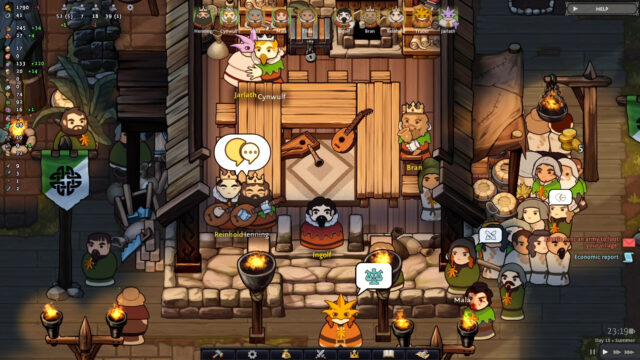
I will also say that Norland has been getting an incredible level of support for Early Access with patches and hotfixes on a near-daily basis, at least in this early going. It has had 12 patches or hotfixes between the Early Access launch on July 18th and me writing this on July 30th…when there was a patch. Maybe they’ll take the money and run off, but that’s a pretty incredible level of commitment.



